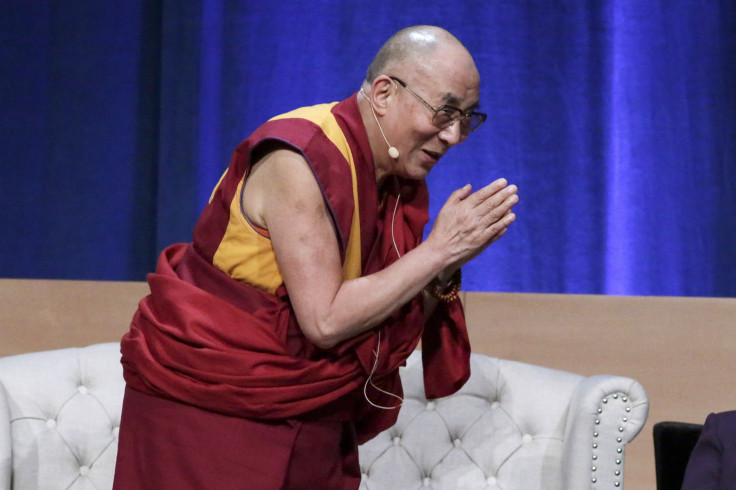China Official Says Dalai Lama 'Making A Fool' Of Buddhism

Exiled Tibetan spiritual leader the Dalai Lama is "making a fool" of Tibetan Buddhism with suggestions he may not reincarnate, or reincarnate as something inappropriate, and the faithful are not buying it, a Chinese official wrote on Monday.
China says the Dalai Lama, who fled into exile in India after a failed uprising against Chinese rule in 1959, is a violent separatist. He denies espousing violence and says he only wants genuine autonomy for Tibet.
The animosity between the two sides, and their rivalry for control over Tibetan Buddhism, is at the heart of the debate about reincarnation.
Tibetan Buddhism holds that the soul of a senior lama is reincarnated in the body of a child on his death.
China says the tradition must continue and its officially atheist Communist leaders have the right to approve the Dalai Lama's successor, as a right inherited from China's emperors.
The Nobel Peace Prize-winning monk has suggested his title could end when he dies. China accuses him of betraying, and being disrespectful toward, the Tibetan religion by saying there might be no more reincarnations.
Writing in the state-run Global Times, Zhu Weiqun, chairman of the ethnic and religious affairs committee of the top advisory body to China's parliament, said the Dalai Lama had to respect the religious and historic traditions of reincarnation.
"The Dalai Lama continues to proclaim his reincarnation is a 'purely religious matter' and something only he can decide, but he has no way to compel admiration from the faithful," wrote Zhu, known for his hardline stance on Tibet.
"He's been proclaiming he'll reincarnate as a foreigner, as a bee, as a 'mischievous blond girl', or even proposing a living reincarnation or an end to reincarnation," he added.
"All of this, quite apart from making a fool of Tibetan Buddhism, is completely useless when it comes to extricating him from the difficulty of reincarnation," wrote Zhu, who was involved in the past in Beijing's failed efforts to talk to the Dalai Lama's representatives.
Tibetan exiles worried China will appoint its own successor to the 80-year-old leader can point to a precedent.
In 1995, after the Dalai Lama named a boy in Tibet as the reincarnation of the previous Panchen Lama, the second highest figure in Tibetan Buddhism, China put the child under house arrest and installed another.
Zhu also said China had been successful in getting fewer and fewer foreign leaders to meet the Dalai Lama, because of the anger it draws from the world's second-largest economy.
"Anyone getting ready to offend China must first weigh up the consequences," he wrote.
© Copyright Thomson Reuters 2024. All rights reserved.




















